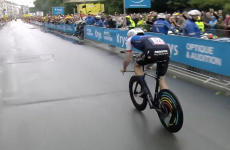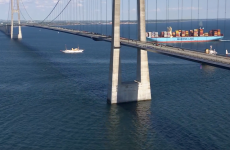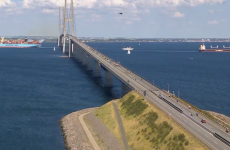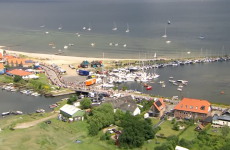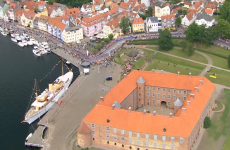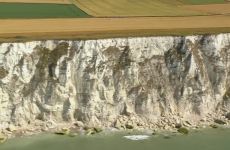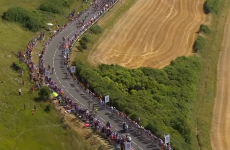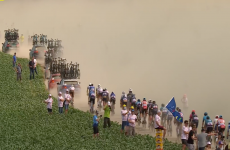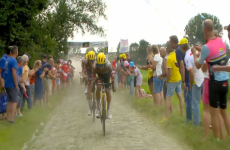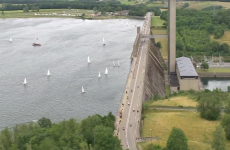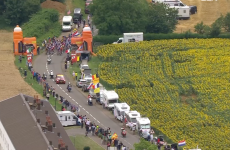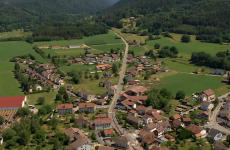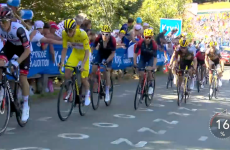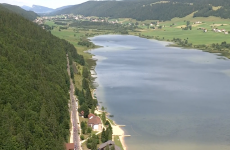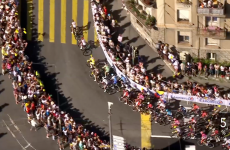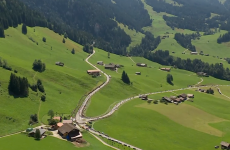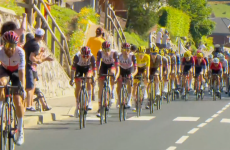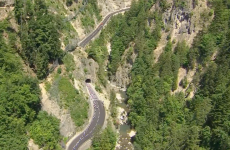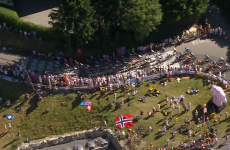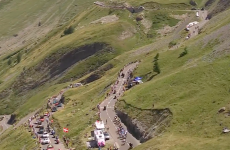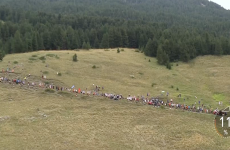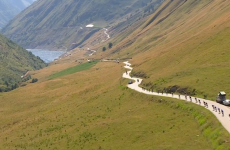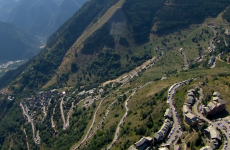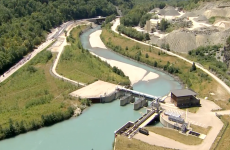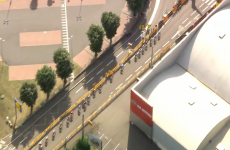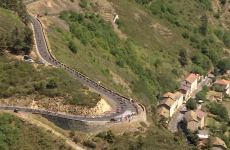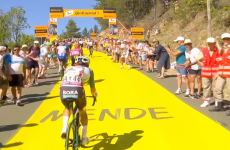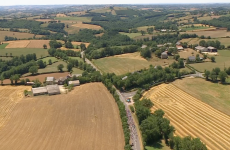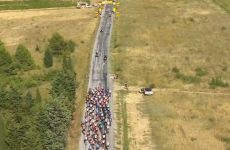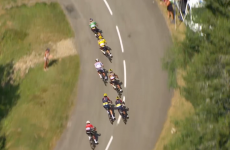Description
July 19, 2022
Tour de France 2022 – Stage 16 – Carcassonne – Foix : 178,5 km
For three weeks of the year cycling fans put their bikes away and root themselves to their sofas,
Show more...
July 19, 2022
Tour de France 2022 – Stage 16 – Carcassonne – Foix : 178,5 km
For three weeks of the year cycling fans put their bikes away and root themselves to their sofas, eyes fixed on their television screens as they watch one of the greatest races of the season play out in front of them. We are, of course, talking about the Tour de France – the one bicycle race that nearly everyone on planet Earth has heard of. This three-week race is regarded by many as one of the toughest sporting events in the world. With 21 gruelling stages to complete over a 23-day period, adding up to around 3,500km in total, the Tour de France is a race of pure endurance. The winner isn’t necessarily the strongest rider, but rather the one who can survive the most suffering, day after day. Five-time winner of the Tour, Bernard Hinault, summed up just what it takes to win this great race: “You can’t win without suffering. Whether it’s in the mountains or in a time-trial, you have to spare no effort. You may feel drained at the finish, but the joy of winning helps you forget everything.” The 2022 route, which is due to start in Copenhagen, Denmark, and finish in Paris, France, is headlined by six summit finishes, two individual time trials and a high-mountain stage that will see the riders grovel their way to the the 2,413m-high summit of the Col du Granon. The rest of the route features hilly stages aplenty, but only a couple of flat stages for the fastmen. In place of sprinting opportunities this year, the organisers have opted for dynamic stages that will suit a wide array of riders and promote aggressive and entertaining racing.
Hugo Houle (Israel-Premier Tech) claimed his first professional victory on the biggest stage in cycling, winning the Tour de France stage to Foix from the day’s successful breakaway.
The Canadian attacked out of a reduced leading group ahead of the Mur de Péguère, playing off the work of his compatriot and teammate Michael Woods, and soloed in for over 27 kilometres to give Israel-Premier Tech its second stage of the race after Simon Clarke’s stage 5 victory.
Houle dedicated the win to his brother Pierrick, who died after being struck by a drunk driver in 2012 while out for a run. The emotion was clear on the 31-year-old’s face a decade later as he celebrated his success.
Valentin Madouas (Groupama-FDJ) out-sprinted Woods for second, with Matteo Jorgenson (Movistar) – who crashed on the descent of the Péguère, trailing in for fourth.
“This means a lot to me,” an elated Houle said. “I had one dream: to win the stage for my brother who died when I turned professional. I won this for him. I waited for 12 years for this. Today I got my win for him. It’s incredible. I don’t know what to say, I’m so happy.
“When I attacked, it was to set the table for Michael Woods but they let me go and Mike made a gap. I just went full gas. I hung on and hung and was suffering so much on the steep part of the climb.
“I knew that if I got to the top with 30 or 40 seconds, that I could do it and so I went full gas. It was tight and a long time at 30 seconds but I never gave up. When they showed me I was at one minute [after Jorgenson’s crash -ed.], it was unreal and I knew I was going to do it.
“I was a bit afraid and suffered with cramps because I couldn’t get to the team car for the last 60km but I made it.”
Despite numerous dodging and parrying on the two category 1 climbs that punctuated the second half of the 178.5km stage from Carcassonne to Foix, the top overall favourites finished together. Tadej Pogačar (UAE Team Emirates) tried to land a knock-out blow on the Port de Lers but found a well-armored Jonas Vingegaard well-supported by his Jumbo-Visma teammates.
Vingegaard was led to the line by green jersey holder Wout van Aert, who, after being called back from the day’s breakaway, shut down any potential moves by second-placed Pogačar. Also present was Geraint Thomas (Ineos Grenadiers) and David Gaudu (Groupama-FDJ), although they struggled briefly on the Mur de Péguère, and Nairo Quintana (Arkéa-Samsic).
Adam Yates and Tom Pidcock (Ineos Grenadiers) and Louis Meintjes (Intermarché-Wanty-Gobert) lost touch and finished 1:19 behind the Vingegaard group, but the biggest loser on the day was Romain Bardet (Team DSM), who lost touch on the Mur de Péguère, lost 3:45, and tumbled down the rankings from fourth to ninth.
Vingegaard continues to lead the Tour de France by 2:22 over Pogačar, with Thomas third at 2:43. Quintana climbed over Bardet and Yates into fourth at 4:15 while Gaudu climbed three spots, moving from eighth into fifth, getting ahead of Yates.
Of the rest of the top 10, Meintjes remains in seventh at 5:46 while Aleksandr Vlasov (Bora-Hansgrohe) made the day’s breakaway and gained over four minutes to scramble over Bardet, Pidcock and Enric Mas (Movistar) into eighth, kicking the Spaniard out of the top 10.
How it unfolded
After the last rest day, the Tour de France peloton was down to 147 riders after Jakob Fuglsang (Israel-Premier Tech) left due to broken ribs from a crash on Sunday, Lennard Kämna (Bora-Hansgrohe) who is sick with a non-COVID-19 cold and Aurélien Paret-Peintre and Mikaël Chérel (AG2R Citroën) who tested positive for the coronavirus. Their departure left AG2R Citroën with only three riders: Benoît Cosnefroy, Stan De Wulf and stage 9 winner Bob Jungels.
Neilson Powless (EF Education-EasyPost) started the attacking from the first kilometres, sparking a 29-rider escape on the first stage in the Pyrenees. With two category 1 ascents in the final half of the stage, the breakaway wanted to gain as much time as they could as the Jonas Vingegaard – Tadej Pogačar battle would be in full flight.
Jumbo-Visma put green jersey Wout van Aert in the move, Ineos Grenadiers launched Dani Martínez and Pogačar’s team had Brandon McNulty there. Aleksandr Vlasov (Bora-Hansgrohe) was the best-placed rider to make the breakaway in 11th place at 10:32.
Stefan Bissegger (EF Education-EasyPost) led the escape over the first climb, the Côte de Saint-Hilaire, with a 5:05 lead on the yellow jersey group, and over the top an attack from Mathieu Burgaudeau (TotalEnergies), Matteo Jorgenson (Movistar) and Alexis Gougeard (B&B Hotels-KTM) tried to go clear.
Jorgenson wisely sat up and let the French duo contest the Col de l’Espinas on their own, where Gougeard left Burgaudeau behind. His solo move was never going to stick and he was back in the escape with 125km to go.
The bunch remained together to the intermediate sprint in Lavelanet with 110.7km to go, where Nils Eekhoff (Team DSM) surprisingly out-sprinted Van Aert and got a stern talking-to for it.
There was trouble behind, mid-stage, when Pogačar’s teammate Marc Soler went out the back to the doctor’s car, vomited and was dropped out the back.
Gloves off on the Port de Lers
On the first major climb, the Port de Lers, Damiano Caruso (Bahrain Victorious) attacked the breakaway, and was joined by Michael Woods (Israel-Premier Tech) and Michael Storer (Groupama-FDJ)
With two kilometres from the top, Jorgenson surged, sparking a reaction from Van Aert, mountains leader Simon Geschke (Cofidis), Vlasov and McNulty.
That group caught the trio ahead before the top of the Port de Lers where Geschke added to his tally for the polka dot jersey as the leaders enjoyed a 9:20 gap, but the action behind would soon distract from the lead group.
Movistar launched an attack from the yellow jersey group to try and pull Mas away. He and two teammates gained nearly a minute before the summit and the surge whittled down the group significantly. Meintjes spent some matches trying to spark a chase but the real action would happen closer to the crest.
In the last kilometre of the Port de Lers, Pogačar threw his gloves down and sprinted away from Vingegaard twice. Both times the Dane blocked the shots. He went again over the top and again, the yellow jersey flicked the sword away. The chasing group were collateral damage and Bardet was among those wounded.
Just 12 riders were with the maillot jaune on the descent and they reeled in Mas before the next climb.
Houle’s attack and detente on the Mur de Péguère
All of that action distracted from the counter-attack that brought Houle to the leading group along with several other riders. From that group, Houle put attacked with 38.5km remaining and never looked back. He made it to the Mur de Péguère with 31 seconds on the chasers.
Tony Gallopin (Trek-Segafredo) attacked to try and catch Houle, with Caruso, Madouas and Woods chasing. By the summit, only Woods and Jorgenson were on the heels of Houle, with Madouas and Geschke picking up points behind.
On the Péguère, Van Aert went back to help Vingegaard, while Movistar again tried to up the pace. Pogačar’s teammate Rafał Majka kept them in check but came to an abrupt stop after snapping his chain.
Kuss came forward to set a brisk tempo near the summit, briefly putting Thomas into difficulty. Luckily, Martínez came back from the breakaway and was there to help. But missing from the group were Yates, Pidcock and Meintjes. The Pogačar-Vingegaard tussle was over – for now.
Behind Houle, it looked as if the top three on the stage would be North American, with Houle being pursued by Jorgenson and Woods, but the Movistar rider slid out in a turn, leaving Woods to chase his teammate solo.
Woods let Jorgenson return to follow him to the finish but the gap to Houle was enough for him to celebrate the first major victory of his career, while Madouas bridged across to the chase and out-sprinted Woods.
Results :

![Tour de France 2022 - Stage 16 [FULL STAGE]](/wp-content/uploads/2022/07/Tour-de-France-2022-Stage-16-FULL-STAGE.png)









